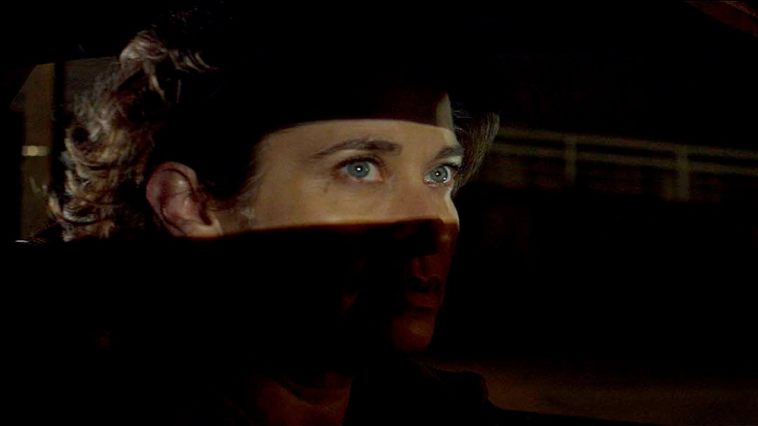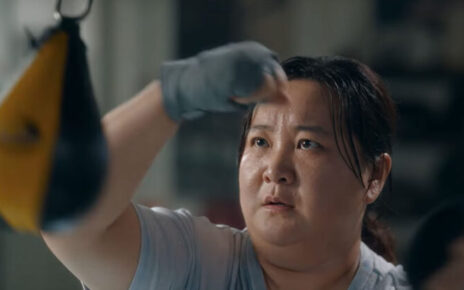Is there a protocol for obsession? Your child dies; it’s ok to dwell on that, right? For weeks, months, years even … nothing wrong there, necessarily. Suppose it was a wrongful death. Nobody would blame you for being touchy about the subject, perhaps blaming a party or two. Heck, your child could still be alive if not for that jackoff, right? Where do we cut off the resentment? Some arbitrarily long time period? 1,000 years, maybe? Do we intervene when resentment becomes obsession? Do we cut it off when it gets to the revenge stage? What is healthy? Does it matter what is healthy? Is there something righteous in justifiable revenge?
I don’t know the answers to any of these questions, but they were all hinted at in today’s film Moka, a Swiss-French compilation about a mom who just can’t it go.
We don’t ever get a look at “normal” Diane (Emmanuelle Devos). We meet her escaping from a low security mental institution, an odd theme among 2016 European film. From her ease back into public, it’s very probable she once had a relatively commonplace life: house, job, husband, teenage son, and all the baggage they carry. Her first stop, however, is a meeting with an off-duty cop who hands her a list of potential hit-and-run vehicles. It’s fair to say this woman has an agenda.
In a heartbeat, Diane identifies the folks she thinks killed her son, Marlène (Nathalie Baye) and Michel (David Clavel). Taking a page from the philosophy of The Godfather, Diane inserts herself into the lives of these folks. Now you might ask, “Where are the police during all this?” Presumably, this is a cold case, but –and I can’t stress this enough- if the police had a list of leads, why didn’t they follow it? And while we’re there, why didn’t anybody notice Diane wasn’t in her room at the institution? And since finding her wouldn’t have been much of a chore, why didn’t any member of the law display an ounce of desire in tracking her down? These questions I can answer: because if the police did their job, there wouldn’t be a film.
This is sort of the ultimate exercise in self-control – you have identified the people who destroyed your life. You have befriended them. They don’t know who you are. Yes, that’s another fairly problematic assumption. However, if we imagine that this tale exists in realm of reality, what’s the next move? Do you toy with them? Have them turn on one another? Embarrass? Humiliate? Ruin? This isn’t a Hitler scenario with a public good involved; this is exorcism of personal demons, who -despite the hit-and-run- may or may not be good people.
with them? Have them turn on one another? Embarrass? Humiliate? Ruin? This isn’t a Hitler scenario with a public good involved; this is exorcism of personal demons, who -despite the hit-and-run- may or may not be good people.
If this review isn’t terribly funny, well, I apologize, but I find child death a tough subject for levity. I will say I have no idea where the title Moka comes from. It means what it sounds like, “Mocha.” That doesn’t make it any easier. I suppose coffee was drunk on film, but I don’t remember any poignancy in said scene(s) and at this moment, I’m unwilling to track down an English translation of the original novel and read it just to get a mildly better idea of what the title signifies. Suffice to say this film asked enough questions already, which despite Moka’s obvious weaknesses, is a good thing – transforming a small French town into a psychological battleground beats the heck out of psyching an English town into a Transformers battleground any day of the week.
A mother who suffered great loss
Decided to show others who’s boss
Revenge, I’m told
Is best served cold
But in France, it comes in cream sauce
Not Rated, 89 Minutes
D: Frédéric Mermoud
W: Antonin Martin-Hilbert, Frédéric Mermoud
Genre: Obsession, for moms
Type of person most likely to enjoy this film: The unrelenting
Type of person least likely to enjoy this film: The forgiving



